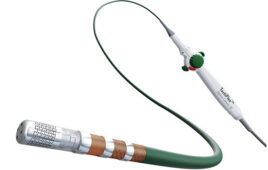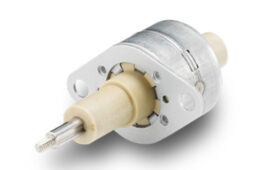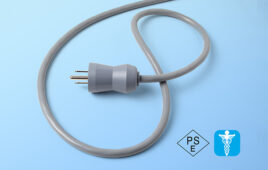
The IQ-ler is meant to reliably transport temperature-sensitive medical supplies. [Image courtesy of Thaddeus Medical Systems, per Diversified Plastics]
Thaddeus — a five-year-old company in the Mayo Clinic’s home city of Rochester, Minn. — found that conventional 3D-printing or manufacturing methods were unable to create the complex, design-patented gyroid lattice structures needed for its IQ-ler. The IQ-ler is meant to reliably transport temperature-sensitive medical supplies and specimens such as expensive biological therapies, vaccines, blood and tissue samples.
The gyroid lattice structures inside the IQ-ler minimize vibration and shock and mazimize airflow in the payload, battery and sensitive electronic compartments.
“To find the right solution to manufacture these components, we tried parts made from several 3D printers, some very well-known brands. The prototypes from these 3D printers didn’t meet specifications and didn’t have a smooth surface finish,” said Dr. Steve Scully, founder of Thaddeus Medical Systems.
“The material for the gyroid lattice needed to be compliant, flexible and resilient to provide exceptional vibration damping with smooth-surface finish characteristics,” Scully said. “The only prototype parts that matched our specifications were manufactured using the Carbon DLS process, the core of DPI’s Acceleration Station.”
Carbon (Redwood City, Calif.) boasts a fast sterolithography printing technology with little impact on the growing part — coupled with a focus on using production-worthy materials and capturing data for better performance.

The gyroid lattice structures inside the IQ-ler [Image courtesy of Thaddeus Medical Systems, per Diversified Plastics]
“One of the most exciting parts of our job as a contract manufacturer is to see the evolution of a part and the success of the product it goes into,” Alverson said.
Thaddeus is now working with Christian Brothers University fon product testing, such as vibration and drop tests compared to competitors’ products.




